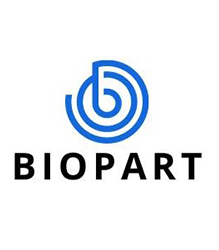
Kopalnie Krypto Team - Tuesday 21 March 2023
Chia DataLayer - trustworthy data
Companies very often base their operations on data recorded, shared, and stored in paper form. These documents are archived in databases that are usually dispersed among multiple entities. Should companies and organizations simply trust this data? How can trust in stored data be built and maintained? This may seem like a challenging task as many parties read, correct, and audit the data.
Chia Network has developed technology and tools that enable the imposition of permissions and identities on its immutable, transparent, public blockchain. Organizations no longer need to rely on unreliable methods such as spreadsheets. There is also no longer a need to entrust database handling and maintenance to individual entities. Chia DataLayer enables building trust by providing control over data access. It also provides mechanisms that encourage users to take responsibility for their data.
What is DataLayer?
DataLayer is Chia Network's technology of a general-purpose decentralized database. It allows the publishing of various types of content that can be later viewed by other users. The data is immutable, similar to the Chia blockchain, but not stored within it. Instead, in the blockchain, only proofs of data existence are stored along with the links leading to them.
Depending solely on central authorities, unreliable data, or information from dubious sources can have tragic consequences. The modern global economy requires the use of data shared among different entities. Chia DataLayer makes data trustworthy again.
DataLayer technology works perfectly for data sharing, enhancing trust between parties. It is a perfect solution for supply chains, healthcare, and consortia, which will also benefit from the transparency of data offered by this technology. Real estate and intellectual property managers, as well as financial markets, will gain particular benefits from the data verifiability offered by DataLayer.
Additional features of DataLayer include:
- Secure data sharing - whether managing inventory and receipts, overseeing medical records, or processing confidential information between external parties - DataLayer enables secure data storage and transparent data usage.
- Accountability - DataLayer offers recording transactions involving capital, goods, and services. It also provides notification and reporting systems between parties, thereby ensuring valuable transparency and shared responsibility.
- Data auditing and tamper prevention - recording data in an immutable, public blockchain ensures unparalleled control and transparency. Organizations can be confident in the integrity of their data, and their stakeholders can rely on robust, independent control systems.
- Public disclosures - a global, public blockchain guarantees transparency of public disclosures. Consumers can be assured that the disclosed data is correct and intact, regardless of how it is shared.
- Data provability - with an immutable blockchain, it is possible to build and maintain a verifiable and tamper-resistant repository accessible to all parties. It may include critical records, logs, legal documents, or agreements.
- Data durability - DataLayer allows for the creation of shared records data ledgers. All external entities will have access to them from their inception. All parties will share the same data.
The fundamental need for transparency and accountability in supply chain management
Supply chains are complex and relatively fragile. Their operation depends on the level of trust each party has in the integrity of available data. This concerns information required for making informed business decisions, often in real-time. Organizations also face unique data challenges, amplified by the complexity of supply chains. These may include inventory management and coordinating requirements from suppliers, customs services, and legal regulations. All this is done using manual, laborious processes, which are susceptible to losses, delays, and errors.
Chia DataLayer technology allows for tracking and recording a product's journey through the supply chain via a shared ledger. It creates an immutable record of the product's lifecycle. Access to data is based on permissions, thus ensuring much greater control compared to paper documentation. Only the required information is shared, and only when needed. Additionally, real-time documentation allows for assessing a shipment's compliance with regulations before its delivery, avoiding potentially costly delays. This technology also facilitates the ongoing sharing of verified commercial documentation between trusted partners. Digital records enable them to identify immediate opportunities for improving trade and avoiding or mitigating potential risks.
The promise of healthcare data access
The sensitive and confidential nature of medical records requires the highest level of protection. Nevertheless, traditional storage of information in paper form or as centralized digital documentation remains inefficient, unreliable, and susceptible to data breaches. What if managing and sharing medical records could be improved through blockchain? What if this technology could provide a permissions-compliant, secure, controllable, and efficient infrastructure?
With DataLayer, patients gain full control over their data. They can grant or deny access to their medical records to healthcare providers at any time. This gives them the assurance that their privacy will be respected, and their personal data will not be shared without their consent. This technology can also streamline the exchange of information between different authorized healthcare entities, allowing immediate access to patient records, regardless of their location or system type.
Climate Action Data Trust based on DataLayer
The Climate Action Data Trust provides a high-quality, integrated infrastructure for carbon dioxide emissions allowance markets. It is one of the first technical implementations of Article 6 of the Paris Agreement. With this system, the private sector, non-governmental organizations, and governments can review the entire market through a single portal. Among other things, they get the opportunity to track the location and frequency of emission units, avoiding double counting.
The Climate Action Data Trust aims to support transparency and efficiency in the voluntary carbon emissions allowance market. It also seeks to increase funding for impactful projects, thereby supporting the environment and local communities worldwide.
Summary
The modern global economy demands data shared between parties to be trustworthy. With DataLayer technology, this requirement can be fulfilled. It makes data transparent, secure, and provable. Organizations of various profiles can store their data permanently and without worry thanks to cryptographic encryption. Nevertheless, all information remains transparent and authentic for other parties that need to use it. DataLayer enables decision-making regarding data sharing and recipients. Entities without proper credentials will not be able to access the information. DataLayer allows for securely recording transactional information involving capital, goods, services, as well as generating notifications and reports. All this happens in a way that limits visibility while maintaining co-responsibility, enabling the efficient functioning of supply chains. Stored data is resistant to unwanted interference and always provable by administrators scattered among many parties. DataLayer creates data replicas for all interested entities, ensuring that the information remains in its original form.





















